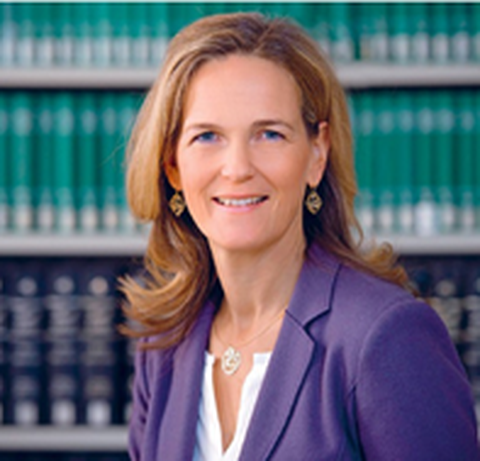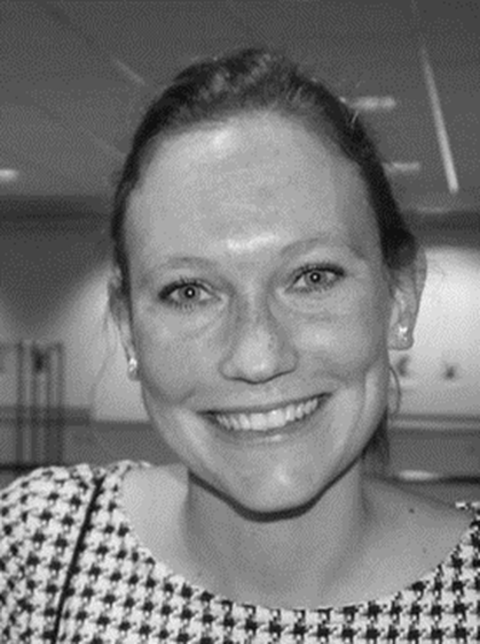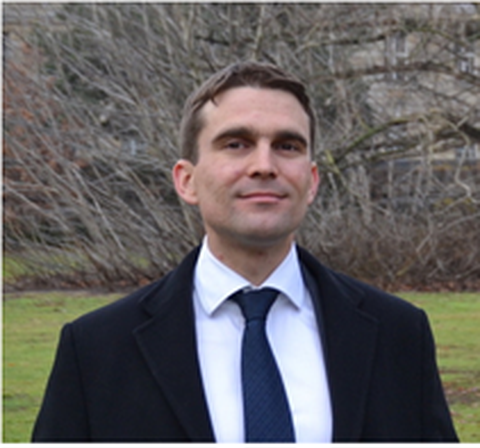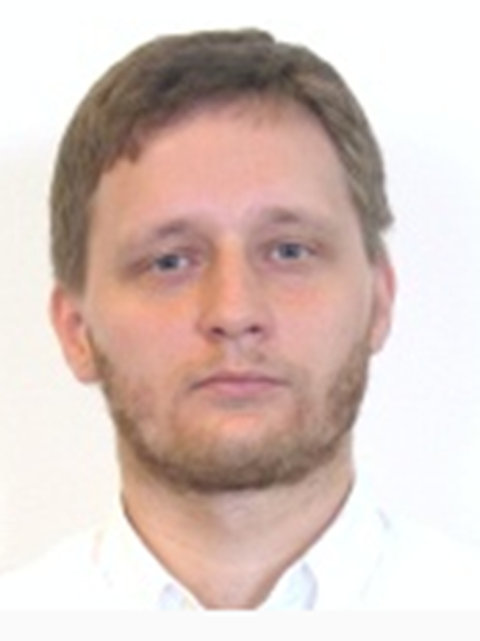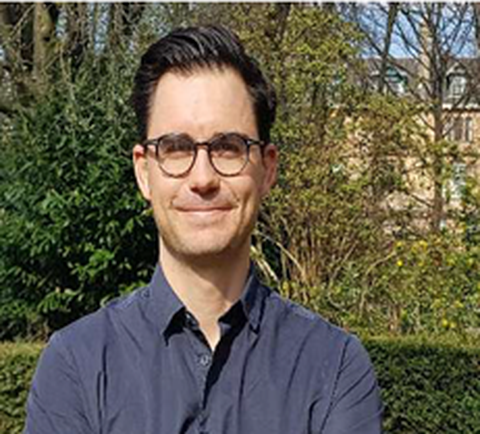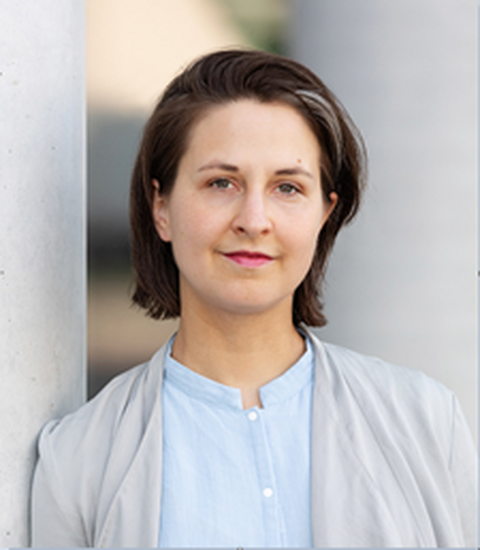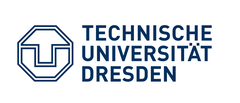Program
Here you can download our program and find more information about our speakers! and our social activities.
Our Speakers:
1. Prof. Dr. Anja Seibert-Fohr: Keynote Speech „The ECHR and its Relevance in Times of Crises”
About Anja Seibert-Fohr:
Anja Seibert-Fohr currently serves as a judge at the European Court of Human Rights. She is the Hengstberger Professor of Public Law, International Law and Human Rights and Director of the Institute for Constitutional Law, Constitutional Theory and Philosophy of Law at the University of Heidelberg. Before that, she was Director of the Institute for International and European Law and the Chair of International Law and Human Rights at the University of Goettingen. From 2008 to 2013, she directed the Minerva Research Group on Judicial Independence at the Max-Planck-Institute for Comparative Public Law and International Law in Heidelberg and acted as a member of the Academic Founding Committee of the International Nuremberg Principles Academy. In the course of her academic career, she has been a visiting scholar at Georgetown University and a Herbert Smith Visiting Professor at Cambridge University in the United Kingdom. Her judicial activities included among others her service as a member of the Human Rights Committee from 2013-2018, holding the position of vice-chair of the committee from 2015-2017. Her research focuses on the Rule of Law, International Human Rights and Dispute Settlement. Ms. Seibert-Fohr has published a large number of works in the field of International Law, Human Rights Law and Comparative Law, including “Prosecuting Serious Human Rights Violations” (Oxford University Press) and an internationally renowned edited collection entitled “Judicial Independence in Transition”. She holds law degrees from Germany (First and Second State Examination) and from overseas (LL.M. in International and Comparative Law with highest honours). As an alumnus of the prestigious German National Merit Foundation (Studienstiftung des Deutschen Volkes), she received her Doctorate in Juridical Science in Washington D.C. (supervisor: Professor Thomas Buergenthal, former judge of the International Court of Justice). The esteemed Max Planck Society awarded her a grant for outstanding researchers for the Advancement of Sciences. She obtained her qualification as a professor (“Habilitation”) from the University of Heidelberg with a monograph on the function and legitimacy of constitutional court judges in liberal democracies.
2. Zane Ratniece: „Pathways to the ECtHR – Jurisdiction and Admissibility Requirements”
About Zane Ratniece:
Zane Ratniece is a legal officer at the Constitutional Chamber of the Kosovo Specialist Chambers in The Hague. She previously worked as a lawyer at the European Court of Human Rights, and a legal officer to EULEX international judges in various phases of criminal proceedings. She has also practised for several years at a law firm in Riga. She has presented and published on issues of international and European human rights law, and provided legal advice in proceedings before the European Court of Human Rights, more recently on the request for referral to the Grand Chamber in Kurt v. Austria and on the application to the ECtHR in Subašić and Others v. the Netherlands and Stichting Mothers of Srebrenica v. the Netherlands.
Abstract: „Pathways to the ECtHR – Jurisdiction and Admissibility Requirements”
This presentation discusses the criteria under the European Convention on Human Rights (ECHR) that an individual application must meet for it to be admissible before the European Court of Human Rights (ECtHR). Compliance with these requirements plays a crucial role in the ‘life’ of an individual application, given in particular that the European Court of Human Rights rejects around 90% of all applications received as inadmissible. In that light, the presentation will examine the admissibility criteria, such as the victim status, exhaustion of domestic remedies and six-month time-limit (which in the future may become a four-month time-limit). These and further criteria will help us understand: who may bring an application before the European Court of Human Rights; against which States; in relation to what rights; and when. In this regard, the presentation will explore how admissibility criteria are applied in practice, for example in the first inadmissibility decision rendered by the European Court of Human Rights in the context of the Covid-19 pandemic. The presentation will also discuss what issues of admissibility could potentially arise in the recent application brought by the Portuguese youth against 33 States in relation to climate change, currently pending before the Court. In addition, we will also explore the formal requirements provided in the Rules of Court, which an application must comply with for it to be considered as valid, which thus are closely linked to its admissibility. While looking at the admissibility criteria, we will also touch upon their connection to more general principles of the system of the European Convention on Human Rights, such as subsidiarity and legal certainty.
3. Edith Wagner: „The Caseload Challenge: ECtHR’s Procedural Efforts for Repetitive Cases: The Pilot Judgement Procedure”
About Edith Wagner:
Edith Wagner is a Research Fellow at the Max Planck Institute Luxembourg in the Department for European and Comparative Procedural Law. Edith holds an LL.M. degree from Yale Law School where she served as an editor for the Yale Journal of International Law and the Yale Journal on Regulation. Prior to joining the Institute, she was a research assistant at the Chair for foreign public Law, European and international law at the University of Würzburg from which she graduated with a degree in law and European law. Her research interests include public international law, human rights, international courts and tribunals, and empirical legal research.
Abstract: „The Caseload Challenge: ECtHR’s Procedural Efforts for Repetitive Cases: The Pilot Judgement Procedure”
The failure of many member states to address systemic issues like inhuman and degrading conditions of detention or delayed justice leads to so-called repetitive cases before the ECtHR. Repetitive cases account for a considerable number of applications each year. On average, every second case that is adjudicated by the ECtHR is repetitive. Once the ECtHR’s case law on the underlying issue is established, repetitive cases do not contribute to the further development of the European Convention on Human Rights. The problem is that the ECtHR’s resources are limited which is why the judges must strike a balance between repetitive and non-repetitive cases.
The lecture provides a comprehensive overview of the ECtHR’s procedural efforts to deal more efficiently with repetitive cases. Its focus will be on the pilot judgment procedure, in particular its development, theoretical underpinning and practical functioning. The first part will provide an overview of the various systemic violations of the European Convention on Human Rights and outline the basic features of the pilot judgment procedure. The second part will be dedicated to the practical aspects of the pilot judgment procedure: the selection of the pilot case, the treatment of adjourned parallel cases and the risks of the pilot judgment procedure. Last but not least, we will take a look at the other procedures for repetitive cases that have received less scholarly attention but are no less important for the efficiency of the ECtHR.
4. Dr. habil. Kyriaki Topidi: „Decisions by an Institution of Principle: Proportionality, Neessity in a Democratic Society and the Margin of Appreciation”
About Kyriaki Topidi:
Kyriaki Topidi is a senior researcher and head of the research cluster on "Culture & Diversity" at the European Centre for Minority Issues (Flensburg, Germany) since 2019. She has lectured extensively and researched in the areas of Public International Law, European Law, Human Rights and Comparative Law. In the past, she has occupied research and teaching positions in various institutions and was a guest scholar in a number of research institutes and faculties across the globe. Her research interests focus on diversity management and minority protection rights and mechanisms (with a special interest in religion). She is the author and editor of a number of volumes and articles. Her latest monograph focuses on The Right to Difference and Comparative Religious Diversity in Education (Routledge, 2020). At the ECMI, she is currently researching on minority identity and digital governance as well as on the intersection of minorities with social movements.
Abstract: „Decisions by an Institution of Principle: Proportionality, Neessity in a Democratic Society and the Margin of Appreciation”
The presentation will discuss one of the most prominent and dynamic legal constructs in European human rights law: the margin of appreciation doctrine as developed by the European Court of Human Rights (ECtHR). The main axis of inquiry will be the critical examination of the concept’s characteristics as they have been defined in the Court’s case law. Designed to allow states room for manoeuver in the manner in which they apply the European Convention on Human Rights (ECHR), three aspects of the concept will form the main axes of discussion: the content and function of the doctrine; its origins and evolution; and the critical approaches to its operation and likely future. The presentation will first cover the way the margin, understood as the discretion given to a government when it evaluates factual situations, has shaped the standards of application of the rights contained in the Convention nationally. The margin will also be addressed as a practical judicial technique towards deliberation in scenarios of a competing plethora of values. Using examples from the rights to private and family life, the freedom of thought, conscience and religion, the freedom of expression and the freedom of association, the discussion will yield useful comparisons on the variations of the limitations used in the application of the discussed rights on the national level. Originally designed to allow a form of subsidiarity among national systems and by extension protect the inherent socio-legal diversity among Member States to the Convention, the margin of appreciation has also attracted critique. The different approaches and levels to such critique will be discussed in the second part of the module. Scenarios of controversy over interpretative disagreements and distress will emerge. In addition, the principle of proportionality, as a counter-tool to the margin will be briefly examined as a balancing attempt to restrain the power of state authorities to interfere with the rights of individuals. Finally, factors determining the current width of the concept developed so far (e.g. European consensus, rights that are ‘fundamental to a democratic society’) but also prospects for the concept’s future developments will be considered. The ways in which the margin of appreciation may affect the dialogue between national and the European courts in balancing, defending and applying human rights in the European continent will be ultimately explored towards an enhanced protection of human rights throughout our continent in the future.
5. Dr. Lize R. Glas: „Does Lady Justice have a Dull Sword? ECtHR Judgements and the Obligation to Execute”
About Lize Glas:
Lize Glas is an assistant professor of European law at the Radboud University, the Netherlands. Glas’ PhD thesis was entitled: ‘The Theory, Potential and Practice of Procedural Dialogue in the European Convention on Human Rights System’ (Intersentia). Also after the publication of her thesis, Glas continues to research the ECHR. In addition to writing about what ‘dialogue’ and ‘access to justice’ mean in the context of the Convention system, she researches the procedures of the European Court of Human Rights (e.g. the pilot-judgment procedure, unilateral declarations and third-party interventions). She is further interested in the execution of judgments, reform of the Convention system and the relation of the Court with the Convention states/domestic courts, the Committee of Ministers and the Court of Justice of the EU. Glas received her LL.M. in International Human Rights Law with distinction from the University of Essex (the United Kingdom), an LL.B. in Dutch Law from the Radboud University and a BA magna cum laude in Liberal Arts and Sciences from Utrecht University (the Netherlands).
Abstract: „Does Lady Justice have a Dull Sword? ECtHR Judgements and the Obligation to Execute”
At the heart of this presentation is the obligation to execute the judgments of the European Court of Human Rights (ECtHR). This obligation will be discussed in four parts. First, the obligation as such will be discussed, both with regard to the respondent state and with regard to the other state parties. The European Convention on Human Rights (ECHR) imposes the obligation to execute the ECtHR’s final judgments on the respondent state; it does not impose such an obligation on non-respondent states. Still, the judgments of the ECtHR are not always without consequences for the latter group of states, due to their res interpretata effect. The second part of the discussion focuses on the role that the ECtHR plays in the execution process and the third part on the role of the Committee of Ministers of the Council of Europe in that process. Although the Committee of Ministers is, in principle, responsible for supervising the execution process, whereas the ECtHR adopts declaratory judgments, the role of the ECtHR in this process has evolved in the past years. The final part of the presentation concerns the execution of the Strasbourg judgments in practice, during which we will have a look at the execution record of different states and the execution problems that result from their (in)action.
6. Leander Beinlich: „Inviolability in Times of Crises: Fundamental Protections for Life and Physical Integrity”
About Leander Beinlich:
Leander Beinlich is a research fellow with Professor Anne Peters at the Max Planck Institute for Comparative Public Law and International Law, Heidelberg, and a Ph.D. candidate at Freie Universität Berlin. His research interests lie in human rights, the relationship between international law and domestic law, the law of armed conflict, and the field of business and human rights. His Ph.D. project explores the domestic enforceability of individual claims arising from international law violations in the fields of foreign affairs and armed conflict. Specifically, it examines the role and potential of individual rights such as the right to an effective remedy or the right of access to a court in informing the domestic enforceability of such claims. Leander obtained his First State Exam after studying law at the University of Heidelberg. During his studies, he spent five months as a trainee at the European Center for Constitutional and Human Rights in Berlin. His Ph.D. research is supported by the German National Academic Foundation.
Abstract: „Inviolability in Times of Crises: Fundamental Protections for Life and Physical Integrity”
The right to life and the prohibition of torture and inhuman or degrading treatment or punishment stand amongst the most important Convention rights. The right to life under Article 2 ECHR is, expectedly, termed “paramount” or “supreme”. Unlike many other rights, which may be restricted if satisfying the proportionality principle, the right to life only permits deprivations of life in narrow and pre-determined cases. The prohibition of torture under Article 3 ECHR, in turn, is commonly and almost reflexively qualified as an “absolute” right that does not allowing for any exceptions or restrictions whatsoever. Also belonging to the group of non-derogable rights, both rights thus enjoy a distinctly high level of protection – which one may call inviolability.
It is this inviolability that this lecture seeks to examine and discuss – in particular from the perspective of “times of crises”. To this end, it will give an overview of Articles 2 and 3 ECHR, before addressing their inviolability more specifically: What does it mean for rights to be “inviolable”, “absolute” or “supreme”? What happens in case two such rights conflict? Finally, how does their inviolability affect positive and procedural obligations emanating from the two rights?
Against this background, the main focus of the lecture will lie on the functioning of the two rights in times of crises such as armed conflicts or the so-called ticking bomb-scenario. After all, it is in particular in such circumstances that Article 2 and 3 ECHR, and their inviolability, come under pressure – in both practical or factual and normative terms. How, then, do the two rights apply and function in times of crises? Can they be adapted to “extraordinary” circumstances? And how is this operationalised in the Court’s case-law?
7. Dr. Mirka Möldner: „Trade-off Between Security and Privacy: Surveillance as a Tool for Dealing with Crises”
About Mirka Möldner:
Mirka Möldner is head of department at the Bavarian Data Protection Authority (DPA). She is responsible for data protection i.a. in the health sector, insurances and social services and coordinates European Data Protection Law issues at the DPA for data protection in the private sector. Mirka Möldner holds a Ph.D. in law from Heidelberg University (2019). Her book “Accountability of International Organizations and Transnational Corporations” was published in 2019. She was a Research Fellow and Senior Research Fellow at the Max-Planck-Institute for Comparative Public Law and International Law from 2010-2015 and Visiting Scholar at Georgetown University (2012) and the Erik Castrén Institute Helsinki (2016). Before joining the DPA she did post-doctoral research on the Right to Privacy and data protection under European Fundamental Rights Law at Friedrich-Alexander-University Erlangen-Nuremberg. Mirka Möldner taught several public law courses i.a. at Munich University, Heidelberg University, University of Santiago (Chile), and University Erlangen-Nuremberg.
Abstract: „Trade-off Between Security and Privacy: Surveillance as a Tool for Dealing with Crises”
The Lecture „Trade-off Between Security and Privacy: Surveillance as a Tool for Dealing with Crisis“ will give insights regarding the scope of Article 8 ECHR and its limitations. We will particularly discuss derogations in response to Covid-19. The lecture will focus on specific measures to counter the pandemic directly affecting the right to privacy and provisions in the EU General Data Protection Regulation implementing the right to privacy. Here we will discuss also how breaches of Article 8 have been dealt with in practice. Finally we will deal with the old but always relevant question as to the relationship of security and privacy.
8. Dr. Björnstjern Baade: "The Decisive Difference Between a Lie and an Opinion: When are Fake News Regulations Compatible with the ECHR?”
About Björnstjern Baade:
Björnstjern Baade is a senior research fellow at Freie Universität Berlin. During his studies in Berlin (Germany) and Birmingham (UK), he had the opportunity to gain experience at the British Institute of International and Comparative Law, the German Foreign Office, and the German Federal Constitutional Court. His doctoral thesis focussed on the methodology and legitimacy of the European Court of Human Rights, at which he also conducted a research stay. In the research group „Towards a Proceduralization of International Law?“ of the Max Planck Institute for Comparative Public Law and International Law, he pursues his Habilitation on questions of law and truth.
Abstract: “The Decisive Difference Between a Lie and an Opinion: When are Fake News Regulations Compatible with the ECHR?”
In recent years, addressing fake news, or mis- and disinformation, has proven to be a major challenge for democratic societies. While the phenomenon is hardly new, modern information technology has increased and accelerated its impact. Responses to public emergencies could be impaired by false and misleading information, as in the pandemic we have been living in for over a year. Elections have been considered to be particularly susceptible to the influence of fake news since the 2016 US presidential election.
Journalists, social media platforms, states and international organizations such as the EU have begun to address the issue with a variety of measures. They seek to counter fake news by contributing to the public debate through fact-checking, by improving their own communication policies and promoting media literacy. But, variously, more coercive approaches against fake news are also considered and taken. States such as France and Hungary passed laws, and social media platforms have taken an increasingly active stance against fake news. From attaching warning labels and reducing the reach of such statements to deleting individual statements and entire accounts, such measures seek to respond more effectively to false and misleading statements that endanger certain public interests or rights of others.
As the response against fake news grows stronger, concerns about freedom of expression become more pressing. Under what circumstances is it justified to coercively interfere with the ‘marketplace of ideas’? Which safeguards must be implemented to prevent abuse? How can fact and fiction be separated – and by who? Which ‘duties and responsibilities’ accompany the freedom of expression guaranteed in Art. 10 ECHR? The European Court of Human Rights’ rich jurisprudence on these issues is bound to become more relevant, but also more controversial, as more actors take a wide range of measures against fake news.
9. Prof. Dr. Nils Schaks, licencié en droit (Paris X-Nanterre): "Enabling the Freedom of Assembly in Times of Crisis: Between Threat Assessment and Protection of Civil Liberties”
About Nils Schaks:
Nils Schaks currently is interim professor at the Goethe-University in Frankfurt/Main (Chair for Public Law and Social Law). He has been working at the University of Mannheim since 2015 and holds an assistant professorship for public law. His research field of expertise is on constitutional law, especially fundamental rights, the principle of democracy and democratic backsliding. He pursues a comparative law and legal history approach. Together with South African and German colleagues, he has been organizing the bi-annual German-South African Dialogue on Democracy since 2012. In 2019 he was a visiting professor at Stellenbosch University. Before joining the University of Mannheim, he worked as a research assistant at the Free University of Berlin (Chair of Constitutional and Administrative Law, Public Economic Law and Social Law) and as a lawyer in an international law firm. He received his doctorate at the Free University of Berlin and studied law in Potsdam, Paris X-Nanterre (licencié en droit) and Berlin (Humboldt University).
Abstract: „Enabling the Freedom of Assembly in Times of Crisis: Between Threat Assessment and Protection of Civil Liberties”
All rights are political. This is due to their origin and nature as legally binding obligations which require enforcement and protection. But some rights are “more political” than others and Freedom of Assembly is one of these political rights „par excellence “. Freedom of Assembly, as it has evolved since the end of the 18th century beginning in North America and France, is a right belonging primarily to individual persons and is directed against the state. Whether it is in Russia, France, Belarus, Germany, Myanmar or elsewhere, assemblies may contradict and challenge the authorities. Therefore, assemblies are seen as a threat to governments and risk being crushed. This is especially true in times of crises which may function as catalysts with respect to undemocratic trends.
In countries where democratic backsliding is occurring, there is a risk that a crisis will be abused to further weaken democracy. Malevolent intentions are not always obvious and can be easily disguised as benevolent during times of crisis. Suspension clauses do not protect fundamental rights in particular. On the contrary, it appears fair to state that there is a general, albeit not always successful, trend towards regulating the legal possibility of suspension in a precise way in order to prevent abuse. Furthermore, the apparent dichotomy between the suspension and non-suspension of rights is not clear-cut, because the limitation of rights is also possible. Even though it is prudent to anticipate potential abuse, constitutional legislators should not lull themselves into a false sense of security. The mere existence of constitutional provisions aiming to contain abuse is insufficient. Still, in order to safeguard civil liberties such as Freedom of Assembly, an absolute limit to any kind of limitation, derogation or suspension of fundamental rights should be established. A substantial or essential core of rights should be elaborated upon by jurisprudence and legal scholars.
10. Prof. Dr. Monika Polzin: "Setting Strict Limits: Rules and Procedures for Derogating from the ECHR in Times of Emergency”
About Monika Polzin:
Monika Polzin is Professor of Public Law at the Institute for European and International Law at the Vienna University of Economics and Business. She studied law at the University of Hannover, the Christian-Albrechts-University of Kiel and the University of Surrey (England). While writing her PhD-thesis on “Unilateral Interpretative Declarations to Multilateral Treaties” (in German) she was working as a Research and Teaching Assistant at the University of Basel (Prof. Dr. Anne Peters, LL.M. (Harvard)). From 2006-2007 Monika was a Hugo Grotius Scholar at the New York University and obtained her LL.M. Degree in International Legal Studies. After working for more than three years as a lawyer in international law firms she became in 2010 a Junior Professor of Public Law with a focus on Public International Law at the University of Augsburg. In 2017 she completed her habilitation on the subject of constitutional identity. Afterwards, Monika was a Visiting Professor of Public and Public International Law in Berlin, Potsdam, Göttingen and München and a Member of the Bavarian Constitutional Court. She acts regularly as a legal expert for national and international institutions. Her research focuses in particular on comparative constitutional law, constitutional identity, international treaty and human rights law, and the methodology of international law (interpretation). She has published in national and international peer-reviewed journals and written articles in English, German, and French. Her most important recent works include “The Basic Structure Doctrine and its German and French Origins – A Tale about Migration, Integration and the Waters of Forgetfulness” (forthcoming Indian Law Review 2021), “Constitutional Identity, Unconstitutional Amendments and the Idea of Constituent Power – the Development of the Doctrine of Constitutional Identity in German Constitutional Law” (I•CON 2016, pp. 411- 434), “Authentic Interpretations and International Courts: Like Tom and Jerry or Calvin and Hobbes?” (Temple International and Comparative Law Journal vol. 33/2, 2019, 247-278) und „Der verrechtlichte Ausnahmezustand: Art. 15 EMRK und die Rolle des Europäischen Gerichtshofs für Menschenrechte“ (ZaöRV 2018, 635-669).
Abstract: „Setting Strict Limits: Rules and Procedures for Derogating from the ECHR in Times of Emergency”
Unfortunately, states of emergency have become increasingly important and common in Europe. The reason is not only the recent COVID-19 crisis, but also terrorism and the particular situation in Turkey since the failed coup in 2016.
The ECHR provides for a legalized state of exception and contains a derogation clause in Art. 15. Art. 15 allows the Member States to derogate in exceptional circumstances, in a limited and supervised manner, from their obligations under the ECHR in order to secure certain rights and freedoms under the Convention.
The presentation focusses on the requirements for derogating from the ECHR as set out in Art. 15 and the leading case law of the European Court of Human Rights. In addition, the relevance of Art. 15 ECHR for the current COVID-19 crisis is discussed.
11. Jessica Gavron: "Prohibiting the Misuse of power – Restrictions on Rights are Limited”
About Jessica Gavron:
Jessica Gavron is Legal Director of the European Human Rights Advocacy Centre and a UK barrister with extensive experience litigating gross violations of human rights before the European Court of Human Rights and UN Mechanisms. Her areas of expertise include gender-based violence, repression of human rights defenders and civil society, and cases arising from conflict such as enforced disappearances, extra-judicial executions and terrorism. She has run numerous trainings for international lawyers across Europe on litigating human rights violations and taught at the London School of Economics on the LLM and LLB International Human Rights Law module. She has also worked at Amnesty International and provided legal advice for Ha-moked legal centre in East Jerusalem, whilst living in Jerusalem.
Abstract: „Prohibiting the Misuse of power – Restrictions on Rights are Limited”
In recent years we have witnessed a number of Council of Europe member states using increasingly repressive measures to silence dissent. Disturbingly, this has included arresting and imprisoning opposition politicians and human rights defenders on ‘trumped up’ or politically motivated charges. The European Convention on Human Rights includes a provision, Article 18, to address just such authoritarian encroachment on human rights, by prohibiting the restriction of rights for any purpose other than those prescribed in the Convention. The Traveaux Preparatoires of the Convention makes clear that Article 18 was intended to prevent totalitarian regimes tightening their grip on power by pseudo-legitimate means and ensure that restrictions on rights are imposed for the general interest. For many years Article 18 was a rarely invoked and little needed provision, as the Court’s jurisprudence expanded in other areas. However recently there have been a number of significant Article 18 judgments, in particular against Azerbaijan, Russia and Turkey, condemning the misuse of criminal prosecutions to silence and punish opposition voices. This session will examine the Court’s evolving jurisprudence on Article 18 and its significance through the discussion of some of these cases.
12. Dr. Mateja Steinbrück Platise: "Global Health Crisis as an Emergency: The Covid-19 Pandemic 2020”
About Mateja Steinbrück Platise:
Mateja Steinbrück Platise is Senior Research Fellow at the Max Planck Institute for Comparative Public Law and International Law in Heidelberg. She is also Lecturer at the Faculty of Law of the University of Frankfurt and University of Heidelberg, where she is teaching courses on human rights law and international dispute settlement. Previously, she worked as Legal Officer at the European Court of Human Rights in Strasbourg, Lecturer at the Law Faculties of the Universities of Lille, Hamburg and Ljubljana, and as Research Assistant at the European Studies Centre of the University of Oxford. She has published on international institutional law, European law, human rights law and international dispute settlement, and has been awarded Marie Curie Fellowship for her project on Responsibility of International Organisations for Human Rights Violations.
Abstract: „Global Health Crisis as an Emergency: The Covid-19 Pandemic 2020”
It is not that rare that States resort to derogations from human rights in order to cope with a public emergency. In the last years, Ukraine, France and Turkey derogated from some of the human rights granted under the European Convention on Human Rights in the wake of the Crimea crisis in 2014, Paris terrorist attacks in 2015 and a failed coup d’état in 2016, respectively. While the European Convention does provide for a possibility of the state to take measures derogating from some of its treaty obligations in times of war or other public emergency, it has been always heatedly debated whether particular states have indeed complied with all the substantive and procedural safeguards prescribed by the treaty.
And then the Covid-19 pandemic broke out in 2020. One state after another declared a state of emergency, yet many of them were surpassed by the World Health Organisation (WHO), which announced in early 2020 the outbreak a Public Health Emergency of International Concern and declared Covid-19 a global pandemic. The announcement was complemented with recommendations on safety measures that states should take to prevent the spread of the coronavirus, such as restrictions of mass gatherings. In the following months, state restrictions on human rights took an unprecedented scope, went sometimes far beyond international recommendations and have left hardly anyone unaffected. The debate on substantive and procedural safeguards that the state has to respect in case of derogations escalated in several states into mass demonstrations – of course, most likely unauthorised.
The presentation will therefore look into the distinctive nature of the Covid-19 pandemic as a global public emergency. It will address some of the challenges concerned with, inter alia, prolonged state of emergency and human rights derogations, the unprecedented scope of derogations and their potentially discriminatory effects, diverging international obligations of states concerning the response to pandemic, and the role of parliaments, national judges and international bodies in scrutinising such human rights derogations, including the European Court of Human Rights.
13. Prof. Dr. David Kosař: "Democratic Decay in Council of Europe Member States: Throwing the ECHR Regime into Crisis?”
About David Kosař:
David Kosař is Associate Professor of Constitutional Law and Director of the Judicial Studies Institute (JUSTIN) at Masaryk University in Brno. He is the author of “Perils of Judicial Self-Government in Transitional Societies” (CUP, 2016) and co-author of “Domestic Judicial Treatment of European Court of Human Rights Case Law: Beyond Compliance” (Routledge, 2020). He was awarded the ERC Starting Grant to study the effects of judicial self-governance (“JUDI-ARCH – The Rise of Judicial Self-Government: Changing the Architecture of Separation of Powers without an Architect”, 2016-2021) and, more recently, ERC Consolidator Grant to study informal judicial institutions (“INFINITY – Informal Judicial Institutions: Invisible Determinants of Democratic Decay”, 2021-2026). David’s research interests include comparative constitutional law, constitutional theory, international courts and tribunals, judicial studies, political rights, refugee law, and transitional justice. He has published in International Journal of Constitutional Law, European Constitutional Law Review, Constitutional Studies, American Journal of International Law, European Journal of International Law, Hague Journal of the Rule of Law, and German Law Journal.
Abstract: “Democratic Decay in Council of Europe Member States: Throwing the ECHR Regime into Crisis?”
The European Court of Human Rights (“ECtHR”) suffers from the burgeoning caseload and challenges to its authority. This two-pronged crisis undermines the ECtHR’s legitimacy and consequently the functioning of the whole European human rights regime. Domestic courts can serve as welcome allies of the Strasbourg Court. Yet, domestic courts are regularly targeted and can be captured by the populist governments. Consequently, there is a danger that captured courts will resent or even abuse the ECtHR jurisprudence. If this becomes a trend, it may throw the ECtHR regime into crisis. Put differently, domestic courts can use the ECtHR’s case law for both good and bad. Hence, it is necessary to distinguish between the bright side and the dark side of the domestic judicial treatment of the Strasbourg case law. The aim of this talk is to analyse both the bright side and the dark side of judicial compliance and suggest how to address this challenge to the ECtHR regime.
14. Dr. Alain Zysset: "Calibrating the Legal Response to Populism: Role and Limits for the European Court of Human Rights”
About Alain Zysset:
Alain Zysset is a Lecturer in Public Law at the School of Law, University of Glasgow. He came to Glasgow from Durham University where he was an Assistant Professor in Public Law. Before holding these permanent positions, he was a Postdoctoral Fellow at the University of Oslo (PluriCourts Center of Excellence), the EUI in Florence (Max Weber Programme) and at Goethe-University Frankfurt (Excellence Cluster Normative Orders). His research lies at the intersection of public law, international law and political theory with particular emphasis on the ECHR. His articles have been published in International Journal of Constitutional Law, Global Constitutionalism, Canadian Journal of Law and Jurisprudence, Criminal Law and Philosophy, Ratio Juris and CRISPP. His academic background is multidisciplinary: after a BA in Philosophy and History (University of Lausanne), he has earned graduate degrees in Philosophy (M.Sc., London School of Economics), History (M.A., Graduate Institute Geneva) and Law (LL.M., University of Toronto). His doctoral thesis was defended summa cum laude at the Faculty of Law of the University of Fribourg (Switzerland) and resulted in a monograph, The ECHR and Human Rights Theory (Routledge, 2016).
Abstract: “Calibrating the Legal Response to Populism: Role and Limits for the European Court of Human Rights”
In this presentation, I shall present an analytical and critical framework for addressing the link between the European Court of Human Rights and populism understood as an ideological project. My argument will be two-pronged. First, I argue that the overarching notion of pluralism offers an important and fruitful point of connection between populism as an idea, on the one hand, and the jurisdiction and practice of the Court, on the other. Indeed, the ideational core of populism fiercely rejects the role that pluralism (moral and political) should operate in the democratic process. On this point, I suggest combining insights from both theorists of populism and theorists of democracy to explicate one of the pathologies of populism. Interestingly, pluralism heavily informs the Court’s reasoning with respect to a variety of ECHR rights - in particular, the democratic ones, as I shall illustrate - when it defines rights and arbitrates conflicts.
Is the Court's understanding of pluralism however sufficient to mitigate the anti-pluralism of the populists? In the second and critical part of the presentation, I shall show that the attack on pluralism orchestrated by the populists is clearly not confined to freedom of expression and the media. The constitutional alterations observed in Poland and Hungary potentially engage other and more positive rights, such as the right to free and fair elections (Article 3 Protocol 1 ECHR). Scholars of populism make it clear: the endurance of populist governments depends on electoral legitimacy and they have a strong interest in controlling any area of discretionary authority in this domain too. In allocating party subsidies, in imposing fines on opposition parties for minor irregularities, or in depriving them from access to the media, electoral bodies are well placed to “choke” opposition agents in their attempt to participate in the democratic process. However, I will argue, that the interpretive apparatus of the Court in this institutional and procedural domain requires a significant upgrade.
15. Caroline Omari Lichuma: "Of Dark Clouds and their Silver Linings: Crisis as Opportunity in the Economic and Social Rights Jurisprudence of the ECtHR”
About Caroline Omari Lichuma:
Caroline Lichuma is a PhD candidate at the Georg-August Universität, Göttingen. She graduated from the University of Nairobi in 2010 with an LL.B degree where she received the Hamilton, Harrison and Mathews – Le Pelley Prize for the best third year student in the school of Law for the academic year 2008/2009. She thereafter undertook her LL.M degree in International Legal Studies at the New York University School of Law where she was a Dean Graduate Scholar. Caroline has numerous years of experience as an assistant lecturer at the Strathmore Law School and at Riara Law School, both in Nairobi, Kenya. In 2014 she was an Emer De Vattel Scholar at The Hague Academy of International Law’s Public International Law Summer School and in 2016 she received a diploma in Justiciability of Economic and Social Rights from the Abo Akademi University in Turku, Finland. In 2017 she was a finalist at the Stanford University’s International Junior Faculty Forum where she presented a paper on TWAIL and the minimum core concept of economic and social rights. Caroline’s research interest and expertise is in the broad area of international human rights with a specific partiality for economic and social rights.
Abstract: “Of Dark Clouds and their Silver Linings: Crisis as Opportunity in the Economic and Social Rights Jurisprudence of the ECtHR”
We live in a world in crisis.
These crises are experienced globally, regionally, by individual States and mostly by individuals themselves. Despite our differences, we are all united by crisis. However, adopting a regional outlook, this presentation will focus on Europe, which, like much of the rest of the world, has in recent times been buffeted by multiple crises ranging from the financial and economic crisis that begun in 2008, to the climate change crisis, to the migrant and refugee crisis, to the Brexit crisis, to the COVID-19 pandemic that has rocked the entire globe.
In times of crisis, it is commonplace to turn to legal and institutional frameworks in the hopes of finding some reprieve. Within Europe, one such institution is the European Court of Human Rights (ECtHR). This Court, also known as the Strasbourg court, was established in 1959 under Article 19 of the European Convention on Human Rights (ECHR). Despite its primarily Civil and Political Rights (CPRs) mandate, the ECtHR has in numerous cases proven to be fertile ground for planting the seeds of Economic and Social Rights (ESRs) protection, which was inevitable, given the widely accepted indivisible, interdependent and interrelated nature of all human rights, whether CPRs or ESRs.
The presentation will have three key sections. The first part will give a brief overview of how the ECtHR has vindicated ESRs through its interpretation of the primarily CPRs found in the ECHR. The second part will thereafter focus on an analysis of three specific crises that have shaped the more recent ESRs jurisprudence of the Court: the financial and economic crisis, the migrant and refugee crisis and the COVID-19 pandemic. Finally, the presentation will conclude by offering some tentative reflections on the crises jurisprudence of the ECtHR, arguing that while some progress has been made by the ECtHR in centering ESRs as a very necessary part of its response to crises, the battle is far from won.
16. Dr. Elif Askin: "Due Diligence Standards in Global Public Health Crises and ESC-Rights”
About Elif Askin:
Elif Askin is a Senior Research Fellow at the Max Planck Institute for Comparative Public Law and International Law and a lecturer at the “Europa-Institut” of the Saarland University. She studied law at the University of Basel in Switzerland. She holds a Master in International Law and a PhD from the University of Basel (summa cum laude) with a thesis on extraterritorial obligations of States in the area of economic, social and cultural rights. Prior to joining the MPI, she held several academic positions as a research assistant in the fields of Public Law, International Law and European Law in Switzerland. She was also a visiting researcher at the Institute for International and Comparative Law in Africa at the University of Pretoria in South Africa. Elif researches in the fields of Public International Law, with a focus on national, European and International Human Rights Law. She is particularly interested in socio-economic rights and the cross-border social responsibility for individuals in a globalised environment.
Abstract: „Due Diligence Standards in Global Public Health Crises and ESC-Rights”
The Covid-19 pandemic has devastating impacts on the enjoyment of economic, social and cultural rights, notably the right to health of the most vulnerable and disadvantaged groups within and across societies. In responding to the pandemic in a manner consistent with human rights law, states must abide by a variety of human rights obligations, including duties to exercise due diligence to prevent, or at least to mitigate, the negative effects of global health crises both domestically and internationally. This raises the question of what exactly constitutes the standard of due diligence in international human rights law that states must comply with. What specific measures are states required to take to meet the standard of due diligence during a global health crisis? What are states obliged to do, to prevent and mitigate negative impacts of the current pandemic on elderly people, women and children, health-care workers, refugees or people living in poverty, if the realization of basic needs is at stake? Are developing countries affected by disproportionate negative impacts of the Covid-19 crisis permitted to act less diligently, given the scarcity of resources available to them? Under what conditions are states responsible for failing to exercise due diligence in order to prevent the spread of disease outbreaks?
The lecture will address these and further pertinent questions regarding states’ due diligence obligations under international human rights law in global health crises, such as SARS, Ebola or Covid-19. The first part of the lecture will set out the international human rights framework for states’ due diligence obligations, and also address relevant case-law of the European Court of Human Rights. In its second part, the lecture will specifically engage with due diligence obligations in health emergencies, as well as related conceptual and practical issues, with a particular focus on economic, social and cultural rights. Finally, the last part of the lecture is devoted to a discussion of measures states have applied or failed to apply within and outside their jurisdictions to meet their due diligence obligations. To that end, the lecture concludes with a comparison of approaches adopted by states during past disease outbreaks and states’ responses to the current Covid-19 situation.
17. Prof. Dr. Mattias Wendel: “Securing Absolute Rights without Exception – The Principle of Non-Refoulement and its Development”
About Mattias Wendel:
Prof. Dr. Mattias Wendel, Maîtr. en droit (Paris 1) is professor of Public Law, EU and International Law, Migration Law and Comparative Law at Leipzig University. He received his doctorate in 2010 at Humboldt University Berlin with a comparative work on integration clauses at national and EU level for which he was awarded the Doctoral Thesis Price of the Faculty of Law. In 2017, he passed the qualification for full professorship ("habilitation") with a work on the multi-levelled dimension of administrative discretion in the fields of migration law and regulation law. Before joining Leipzig University in 2020 Mattias Wendel held a position as professor at the University of Bielefeld from 2018-2020. He is author of several books, articles and contributions in the field of EU law, constitutional law and comparative law and a member of the editorial board of the European Constitutional Law Review and the Cahiers de droit européen.
Abstract: "Securing Absolute Rights without Exception - The Principle of Non-Refoulement and its Development"
The lecture focuses on the human rights dimension of the principle of non-refoulement as it has developed on the basis of Art. 3 ECHR in the case law of the ECtHR. This principle, which is protected in absolute terms by the ECHR, forms an essential pillar of refugee law in Europe. The lecture does not only present the details of the Strasbourg jurisprudence and its development, but also discusses similarities and differences with the principles of non-refoulement as guaranteed by the Geneva Refugee Convention and EU law. In light of recent (and highly controversial) case law, the lecture also sheds light on the prohibition of collective expulsion under Art. 4 of Protocol No. 4 to the ECHR which is also protected in absolute terms.
18. PD Dr. Johannes Eichenhofer: "Protecting the Most Vulnerable: Children in the Context of Migration”
About Johannes Eichenhofer:
Johannes Eichenhofer is a private lecturer (“Privatdozent”), currently representing the Chair for Public Law at the Karlsruhe Institute of Technology (KIT), Germany. His research and teaching activities focus mainly on basic and human rights protection, especially in the areas of migration and integration, as well as privacy and data protection. After completing his studies of Law at the Free University and the Humboldt University of Berlin, as well as at the University of Siena (Italy) with the First States Exam (2009), Johannes Eichenhofer wrote his dissertation on the “Concept and Conception on Integration in the German Integration Act”, which was published in 2013 by Nomos. In 2013, he also completed his Legal Clerkship (2011-2013) at the Higher Regional Court of Berlin. From 2014-2019 he was working as a postdoctoral fellow at the University of Bielefeld, where he was mainly involved in an interdisciplinary research project on the “Transformation of Privacy”. Among other publications he also wrote his habilitation thesis on “e-Privacy – theoretical and doctrinal foundations of a European privacy protection”, which will be published in spring 2021 by Mohr Siebeck. From 2015-2019 Johannes Eichenhofer was also giving classes in Asylum and Immigration Law for the Refugee Law Clinic Berlin. In the winter term 2019/20 he represented the Chair of Public Law and Legal Philosophy at the Albert-Ludwigs-University in Freiburg. Since the summer term 2020 he is affiliated with the KIT.
Abstract: “Protecting the Most Vulnerable: Children in the Context of Migration”
Children and adolescents are holders of human rights. However, they are "not little adults" (Maria Montessori), but human beings with special needs. These needs are expressed in the fact that children and, to a lesser extent, adolescents are dependent on the emotional and social closeness to their parents, other family members and other third parties (e.g. legal guardians or social care workers), and – since they are not yet fully able to act for themselves – on their support. These needs must also be addressed in migration and refugee law. According to the UNHCR, almost half of the 70 million refugees worldwide are minors; the question of how to do justice to their human rights is therefore not a marginal problem, but a central challenge for migration and refugee law. Against this background, the lecture will essentially pursue three questions.
In a first step, the lecture will analyze to what extent the special needs of migrant minors – especially those who do not accompany their family but are unaccompanied – are taken into account in the jurisprudence of the European Court of Human Rights (ECtHR). This question will be examined on the basis of ECtHR decisions on family reunification, on the establishment of family unity in the context of expulsion and deportation, on the living conditions for children in reception centers for asylum seekers, and on the social rights of children and adolescents in general. In a second step, the lecture will pursue the question of the extent to which gaps in protection arise here and to what extent these could be closed by the rights of the United Nation Convention on the Rights of the Child (UNCRC), by Art. 24 of the EU Charter of Fundamental Rights (CFR) or by other specific "children's rights". To this end, we will take a look at the legal situation in Germany, where the introduction of children's rights into the constitution has just been discussed and is very likely to happen. Would the incorporation of specific children's rights also be useful in the ECHR? Finally, in a third step, the presentation will address the EU Pact on Asylum and Migration of September 2020 from the point of view of how it contributes to an improvement or a deterioration of the rights of children.
19. Dr. Dana Schmalz: "From Restrictions on Mobility to Deprivations of Liberty: Detention in the Context of Migration”
About Dana Schmalz:
Dana Schmalz is a postdoctoral research fellow at the Max Planck Institute for Comparative Public Law and International Law in Heidelberg/Berlin. She holds a Ph.D. in law from the University of Frankfurt (2017) and an LL.M. in Comparative Legal Thought from Cardozo Law School, New York. Her work centers on international and European refugee law, fundamental rights, democratic theory, and critical approaches to international law. Her current research project “International law and population growth: An analysis and theoretical inquiry” is supported by the Alexander von Humboldt Foundation through a return fellowship following her stay at Columbia Law School (2019/2020). Before that, Dana Schmalz has been a visiting professor (Lehrstuhlvertretung) at the University of Bremen (2019), a visiting scholar at the Zolberg Institute for Migration and Mobility at the New School, New York (2018-2019), a postdoctoral research fellow at the Max Planck Institute for the Study of Religious and Ethnic Diversity in Göttingen (2017-2018), and a research fellow at the Max Planck Institute for Comparative Public Law and International Law in Heidelberg/Berlin (2011-2016). Dana Schmalz is a founder and the Co-Editor-in-Chief of Voelkerrechtsblog and an associate editor for migration and refugee law at Verfassungsblog. She belongs to the editors of Kritische Justiz. Her book “Refugees, Democracy and the Law. Political Rights at the Margins of the State” was published in 2020. Most of her writings can be found on her academia-profile.
Abstract: “From Restrictions on Mobility to Deprivations of Liberty: Detention in the Context of Migration”
The legal regulation of migration means a regulation of free movement. Migration law concerns the rights to cross territorial borders and the conditions of legally residing in a state. In the context of forced migration and asylum seekers, the general regulation of mobility often meets with more narrow restrictions on liberty, in the form of the detention of migrants.[1] The restriction of mobility in the sense of migration law and the narrow confinement of free movement in the sense of detention can seem hardly related. However, courts had to distinguish detention and other restrictions of mobility on many occasions, for instance in cases of entry denial at airports.[2] Immigration detention is a growing phenomenon world-wide.[3] In Europe, the qualification of transit zones as detention and permissible regimes within those zones have lately been object of judgments by the European Court on Human Rights[4] as well as the European Court of Justice.[5] The session will discuss basic human rights principles regarding immigration detention and focus on the recent European decisions and debates.
[1] For data on detention in the context of migration worldwide see https://www.globaldetentionproject.org.
[2] Cf. ECtHR, Amuur v. France, Appl. No. 19776/92, Chamber judgment of 25 June 1996; ECtHR, Z.A. et al v. Russia, Appl. Nos. 61411/15 et al, Grand Chamber judgment of 21 Nov. 2019.
[3] Amy Nethery/Stephanie J. Silverman (eds.), Immigration Detention. The migration of a policy and its human impact (Routledge 2015).
[4] ECtHR, Ilias and Ahmed v. Hungary, Appl. No. 47287/15, Grand Chamber judgment of 21 Nov. 2019.
[5] CJEU, C-924/19 PPU and C-925/19 PPU, Judgment of the Court (Grand Chamber) of 14 May 2020.
Our Social Activities:
We want to offer you a chance to not only learn about Human Rights but to also explore the city of Dresden, its fascinating history and its rich cultural life. Here is a list of what we offer for you:
Explore Dresden Neustadt
Here you can see the famous "Kunsthofpassage" in Dresden Neustadt, a system of courtyards transformed into a place of art. Dresden Neustadt on the northern side of the river Elbe is the city's neighborhood for art, cinemas, bars and restaurants - the number one sanctuary for students. The neighborhood's special charm also comes from its mid-19th century buildings. more.
Visit to the "Hygienemuseum"
Museum and cultural center in one, the Hygienemuseum does not only offer a permanent exhibition on human health, but also theme-based exhibitions that cover the scientific, social, cultural and political dimensions of topics as diverse as nutrition, imprisonment, racism or plants. The exhibition during the time of our summer school will be on Artificial Intelligence. More on the Hygienemuseum.
Canoe Tour on the Elbe
Everyone who wants to explore Dresden from a different perspective is welcome to join us on the river Elbe for a Canoe Tour around the city.
Vist to the European Center for the Arts in Hellerau
The Dresden neighborhood Hellerau was the first "garden city" designed in Germany. When built in the early 20th century, the idea was to create an area in which people could work, live, make art, music and theatre in just one place. At the heart of Hellerau is the festival house. In its hundred-year old history it has seen artists and early 20th century social reformers, but it has also been used as a military training area by both the Nazis and the Soviets before it became a house for music and theatre once again in the 2000s. More
Visit to the Dresden Museum of Military History
The museum of Military History alternatively presents a chronological journey through German and European military history or a thematic journey that crtically reflects on the role of war in human history, culture and society. It seeks to be a place of debate on matters of the past, present and future of war in all its implications. More
***This project is supported by the Federal Ministry of Education and Research and the Free State of Saxony within the framework of the Excellence Strategy of the Federal Government and the Länder ***

